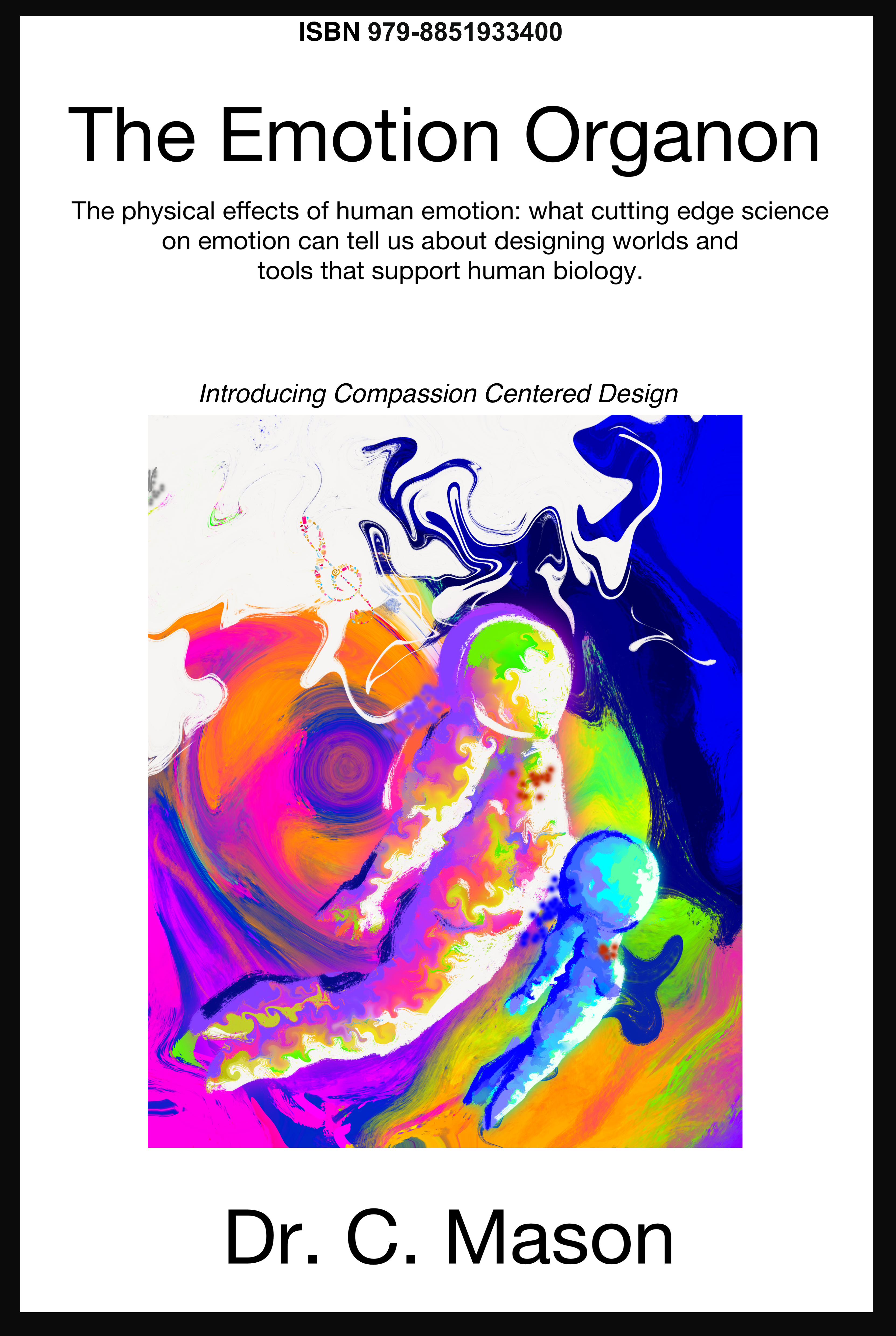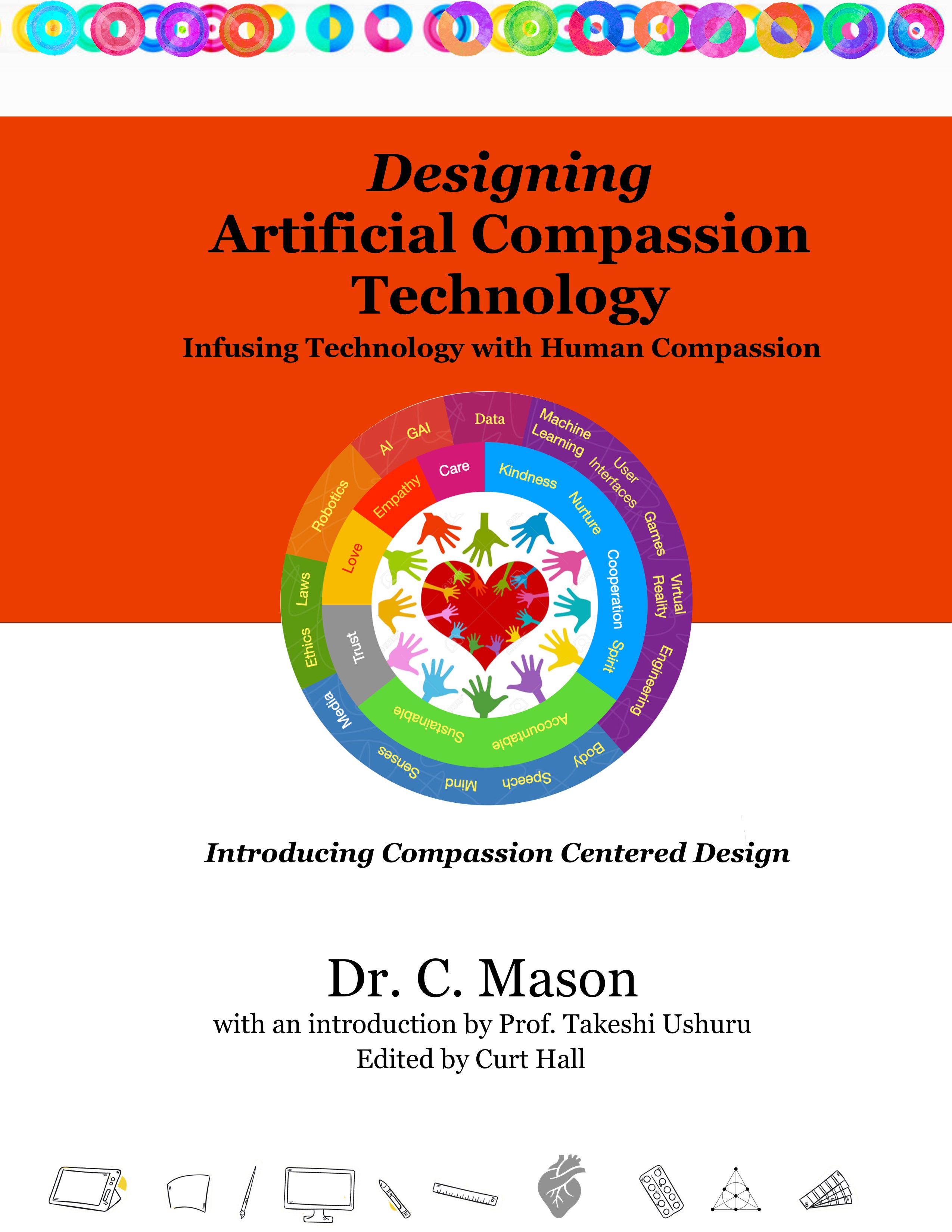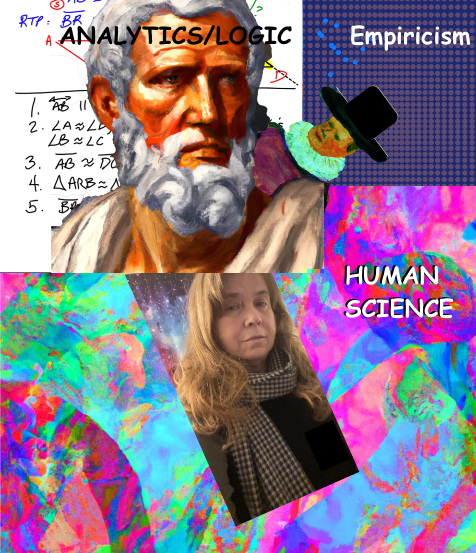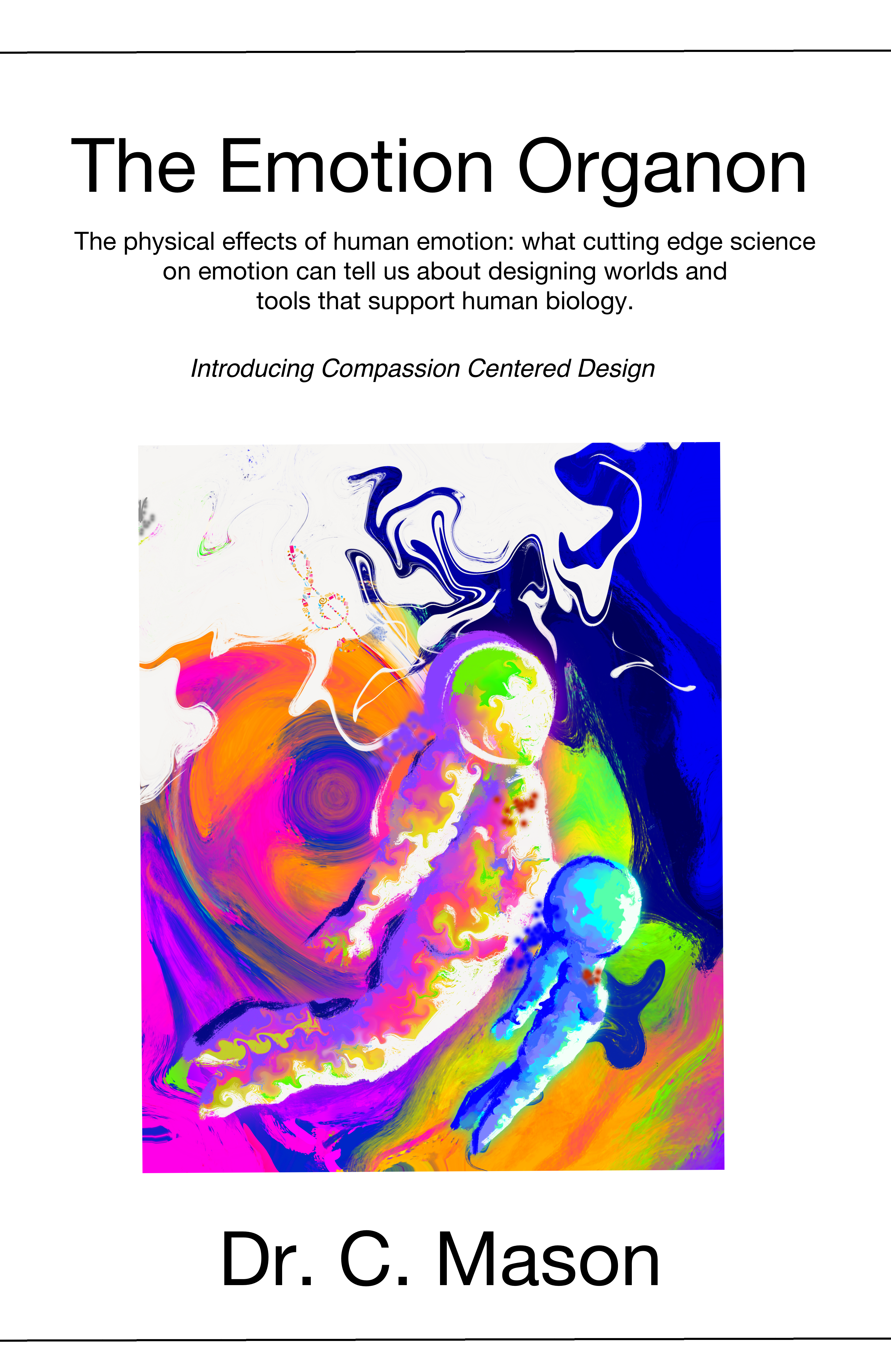





Around fifty years ago, immunologists discovered positivity has a positive impact on our
immune system. Now neuroscientists have discovered compassion helps over 50% of our body functions.
They also found our biology is so wired for compassion we benefit even when we witness it! This is so
amazing. I am an AI researcher, but I began to think differently about intelligence after I started
working with compassion therapies. While working on AI at U.C. Berkeley and Stanford, my work became intertwined
with positive psychology and compassion sciences. I began working as a
compassion therapist with extremely ill patients in local hospitals. I saw with my own eyes how important compassion is to our survival and health. It seemed
to me that if something helps us survive, surely it is a kind of intelligence.
Later, I discovered there is a medical renaissance of emotion revolving around positive emotions like compassion. Compassion affects not only
our immune systems but also our wound healing, our guts and our hearts. I believe these discoveries in human science mark a new era for us that
is going to change our world for the better. So what does this have to do with technology? Technology is about automation
and efficiency, right? Imagine what would happen if we designed technology that was infused with positive emotions, like compassion. Or if we designed
technology to protect and care for us.
These remarkable human science discoveries tell us that when it comes to people, it's time to think about more than just data.
Our technology can be designed to reflect our better selves. Consider how much
technology already surrounds us - from our watches and cell phones to video games, social media and cars. Some of us are immersed.
Some of us now have computer screens glued to our faces (with goggles and glasses).
If we can design these systems and devices with Artificial Compassion, it could change our daily experiences for the better.
We can do this. The books on this site will get us started.
This page contains three books that can be helpful for designing Artificial Compassion: The Emotion Organon, Algorithmic Duty of Care and Designing Artificial Compassion Technology. The first book (The Emotion Organon) details the human science behind Artificial Compassion. It also connects the dots between scientific discovery and the way we define knowledge. It might sound boring until you realize that AI, robotics, Generative AI and machine learning depend entirely on knowledge. In fact, they don't exist without it. The Emotion Organon is already on Amazon. It came out at the beginning of 2024. In the process of researching for Designing Artificial Compassion Technology, several court cases involving algorithms made clear the need to include law as an aspect of care. Its a very hot area, with new laws and policies emergying around the planet as well as a growing number of conflicts and scandals. This is the second book, Algorithmic Duty of Care . It is coming out in June, 2025 on Amazon. Designing Artificial Compassion Technology hopefully will be completed by the end of 2025!

An “organon” is a word meaning “knowledge” or instrument of knowledge. Our modern world is based on knowledge. Our schools, medicines, laws, and every kind of AI and machine learning depend on it. But what kind of knowledge? Is anyone asking?
It turns out the ideas of knowledge we live with in the world today are quite old. Aristotle’s ideas, formulated in his volume set “The Organon” from 50 BC, were rooted in logic and analytical thinking. Francis Bacon’s ideas, formulated in “The New Organon,” are from the 1620’s. Francis Bacon’s ideas of knowledge were formulated along with the invention of the telescope and microscope. He held the belief that knowledge should be based on what we can observe in the world around us. With the microscope and telescope we could count, catalogue and compare things like never before. These observations of our world gave rise to knowledge of patterns in the world, such as the patterns of waves or spider webs and trees. This is called 'empirical' knowledge and is the foundation of machine learning and generative AI. Neither of these formulations of knowledge take into account our inner experiences as living beings - our social relationships, emotional experiences and subjective inner world. The science of this part of our lives simply did not exist yet. But now it does. The discovery of bioplasticity, along with advances in the intersection of psychology and medical science have made our previously internal world measurable and visible. For Artificial Compassion, we begin to design technology with these discoveries in mind. Our designs also bake in care and protection for us with principles such as Algorithmic Duty of Care.
More about Book 1, The Emotion Organon.

The Emotion Organon teaches you the science of how our positive social and psychological experiences heal us. They protect us, and their importance to our survival is paramount. This is common sense and it is an important part of being human that belongs to all of us. As we immerse ourselves with technology and create social cyber worlds, how could we have left something out that is so important? It has not been left out because someone was in a hurry. And it has not been forgotten by people who create modern technology and media. We simply did not know about it before. These medical discoveries of emotion did not exist when the foundations of technology began, so long ago now.
This book explores the concept of bioplasticity, a biological phenomena where we are literally changed by the
experiences we have, including our experiences and co-evolution with technology.
It introduces the idea of intentionally designing for positive device bioplasticity. This is based on
scientific discoveries in nearly every field of medical science that
document the link between positive emotion and our body's ability to function and heal. These include the support for healthy blood pressure, body temperature and immune function.
Positive emotional experiences are also important for resilience in the face of chronic stress.
For example,
during the COVID-19 pandemic, health workers who trained and practiced in self-compassion had less burnout and fatigue - both signs of chronic stress.
When
technologies and media are designed without support for this aspect of ourselves, in our constant contact with that technology we can become dissociated from
this aspect of our selves. We can design technology that reassociates us with this amazing part of our human selves.
In The Emotion Organon, we touch briefly on how technology and media
can be designed to support this higher part of our humanity, focusing on bioplasticity and the development of new medical insights, modern human science and compassion science.
In
Designing Artificial Compassion Technology, you will find out how we can design technology (and media)
to not only remind us of our own compassion but to amplify it in the workplace and social cyber world.
More about Book 2, Algorithmic Duty of Care.

In a nutshell: Part I of this book connects the dots between the Magna Carta and a new kind of digital kingdom. Unlike most texts, it explores real world court cases on algorithms. Part II details the emerging new global landscape of laws and policies currently being created in response to these cases and founded in culture and ethic bases. In the book you find a rare and much needed bridge between law, AI Ethics, design philosophy and even spiritual hacker thought. It is a guide to a new algorithmic world and the evolving legal landscape.
In a nutshell: in this book we learn what Artificial Compassion is, why we need it, and how to design it. We become compassion literate and learn about two frameworks for infusing human compassion into technology design. We learn about what is already happening in video games and virtual reality, and find ways to bring compassion thinking to everything we do - from machine learning and Gen AI to human-robot interaction and even building guardrails to shield us from the yucky parts of the internet. We also learn about the connections between technology and our social structures and institutions. Do you have to be a compassionate hacker to make Artificial Compassionate Designs? No, but it can be helpful to determine whether you are employed by an organizational psychopath. And how to spot a healthy work environment. We also find out about some very cool Japanese philosophy called fudo that shows us that, like the wind and earth, we exist in interdependence with one another. And when we look at where we are now, we realize we have created a computational fudo. Concepts such as these aid us in our comprehension of the necessary actions to take as we co-evolve with our devices, systems and games. It also gives us a language to talk about our relationships with technology and to architect our physical spaces with technology to best support us.
More... Imagine we have a tool in our pocket that can help us avoid bullies and have better social options? Or uniquely reminds us of how loved we are, in a voice that is perfect just for us. It's far from ridiculous to do this: loving tenderness has been shown to reduce our pain levels and to improve our odds against cancer. Besides, human kind has always made tools to help our lives be better. And now, because of discoveries in medicine, we know how to do this. In fact, as you find out in the book, the era of Artificial Compassion Design has already started!
There is this idea that technology is all about automation and efficiency. It’s a great idea and has made many of life’s chores and tediums easier. As a woman, I love not beating clothes with rocks and instead using a washer and dryer. I also love driving my car. Today what I wish for is a gadget that would look out for me and help me with difficult situations, including social situations. This would increase quality of life, reduce anxiety, and provide support when the people I depend on cannot be around. Or, as life shows us.. sometimes they die, or unfortunately, abandon us when we are ill. Having health and protection should not just be for wealthy people. With technology design and the new discoveries of human science, it can be for all of us.
We can use technology not only for automation and efficiency, it can empower us. Artificial Compassion Technology is a palette of ideas founded on new medical discoveries that are for our benefit. If we have another pandemic, I know I would certainly like to have a device like that in my pocket. Wouldn't you?
These three books represent a pilgrimage that brings positive humanity back to technology and media through a foundation of modern human science and medical discoveries. We need to do this because it feeds our cells, our organs and our life force. Compassion and kindness keep us together in relationships. Instead of turning away from our emotions and our bodies as we strap on and tune in, we can marvel at them. As programmers, designers, or engineers, we often work at a fast pace, churning out solutions quickly. This rush is part of the culture, but it can make it difficult to pause and consider the long-term effects of what we’re building. We rarely stop to think about how our creations might impact us—or the consequences once this technology is woven into our daily lives. Developing this awareness changes our mindset. We are training ourselves through our everyday experiences and attitudes towards one another, ourselves and the earth. These books open the door to a different kind of knowledge that belongs as part of the technology, environments and media of our lives. We find the knowledge is familiar. It is something we already know, but have forgotten, and when we come back to ourselves, there is a remembering.
If you sincerely want a book but can’t afford it, please reach out to me, we can make it happen. Also if you happen to like coloring books, there is a Compassion Coloring Book, also on Amazon.
Copyright 2023-present Dr. C. Mason